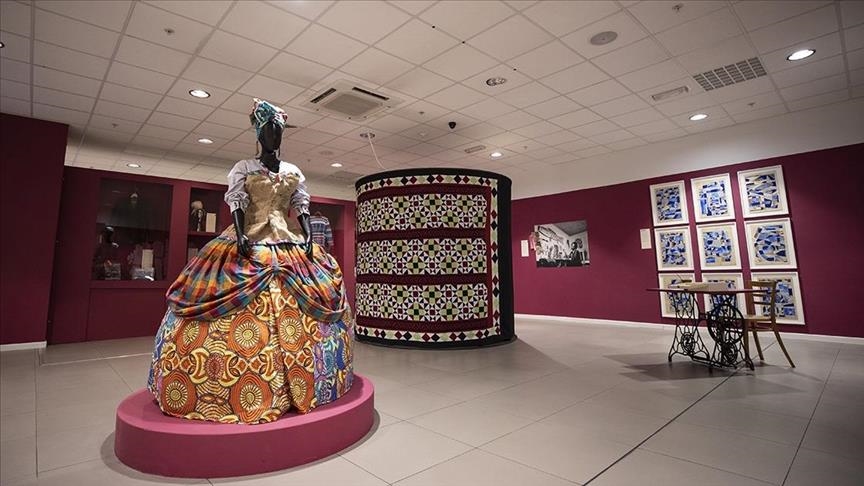
LONDON
The Migration Museum in London has been showcasing the success stories and contributions of migrant entrepreneurs to the UK at a time when the country is attempting to send asylum seekers to the East African nation of Rwanda.
British Prime Minister Boris Johnson announced earlier this month that thousands of asylum seekers and refugees attempting to enter the UK will be sent to Rwanda for reprocessing in an attempt at what he called gaining back control of the UK’s borders and putting an end to illegal people smuggling across the English Channel.
Johnson’s new plan has been widely criticized as cruel and inhumane and has been denounced by leaders of the main opposition Labour Party as well as the Liberal Democrat Party and the Scottish National Party.
Established in the UK about 10 years ago but still not having a permanent and settled status, the museum highlights the legacy of migrant entrepreneurs with its activities at train stations, exhibition halls and libraries in the city.
Located in the south of London since 2017, it moved to Lewisham Shopping Centre in the southeast of city this year.
The museum tells the stories of migrant entrepreneurs through their words with audio narrations and historical photographs as well as texts.
Migration an important part of UK history
Highlighting the importance of the role that migrants played in the UK, the museum's head of communications, Matthew Plowright, told Anadolu Agency: "We feel that migration is such an important part of all of our stories and of our history. If you peel back the layers of anybody's family history in Britain, you will find stories of migration of movement whether to Britain, whether from Britain, comings and goings, or internally within the UK."
Migration is a subject which everyone in the country can connect with in some way, Plowright said.
"It's such an important part of our story, and we want to have a setting to tell that story."
- London's first coffee house founded by Armenian trader from Turkiye
Plowright said many people react in a similar manner when they come across a museum exploring migration for the first time.
“They say ‘I didn't know there was a museum in a shopping center. And I didn't know that there was a museum exploring migration,’” he said.
“I think for a lot of people, when they come in, they feel really moved or touched or a sense of personal connection to a lot of the stories that are being retold.
“Whether we have a platform or not, what matters is that almost all of the stories that we tell allow individuals to express their own stories in their own words,” he added.
Pointing to a very old historical advertisement in a frame hanging on the wall of the museum, Plowright said: "This advert here is for London's first coffee house founded in 1652 by an Armenian trader who came to London from Smyrna, which is modern day Izmir in Turkiye. There was a much more developed coffee culture in Turkiye than in that region, but at the time, coffee was unknown in England. So when this man by the name of Pasqua Rosée came to London, he spotted an opportunity to bring coffee culture and the coffee houses that he knew from home to London. So he opened what became London's first coffee house, which was in the City of London near to the Bank of England in 1652."
Compassion sometimes missing from discussions or some policies about migration
Touching on the government's new plan to send asylum seekers to Rwanda, Plowright said: "I think that often when people are talking about policies, or trying to come up with guidance about whether people should or shouldn't be entitled to stay in the UK, what's often missing from a lot of these discussions and debates is the human aspects."
Migration is essentially a human story in which everyone moves for a reason and has their own set of motives for doing so, he said.
"I think with policies or debates or discussions, which can feel quite inhuman, or the human element of it hasn't really been taken into account, that compassion is sometimes missing from the discussions or from some of the policies…especially in terms of asylum seekers or people that are fleeing persecution, war, whatever the circumstances at home, and seeking refuge, seeking a safe haven.
"I think that showing compassion, showing a welcome understanding, empathizing with where people have come from is not to say that probably has to be some sort of process, but I think it's doing so in as humane and compassionate and human way as possible."
Anadolu Agency website contains only a portion of the news stories offered to subscribers in the AA News Broadcasting System (HAS), and in summarized form. Please contact us for subscription options.







